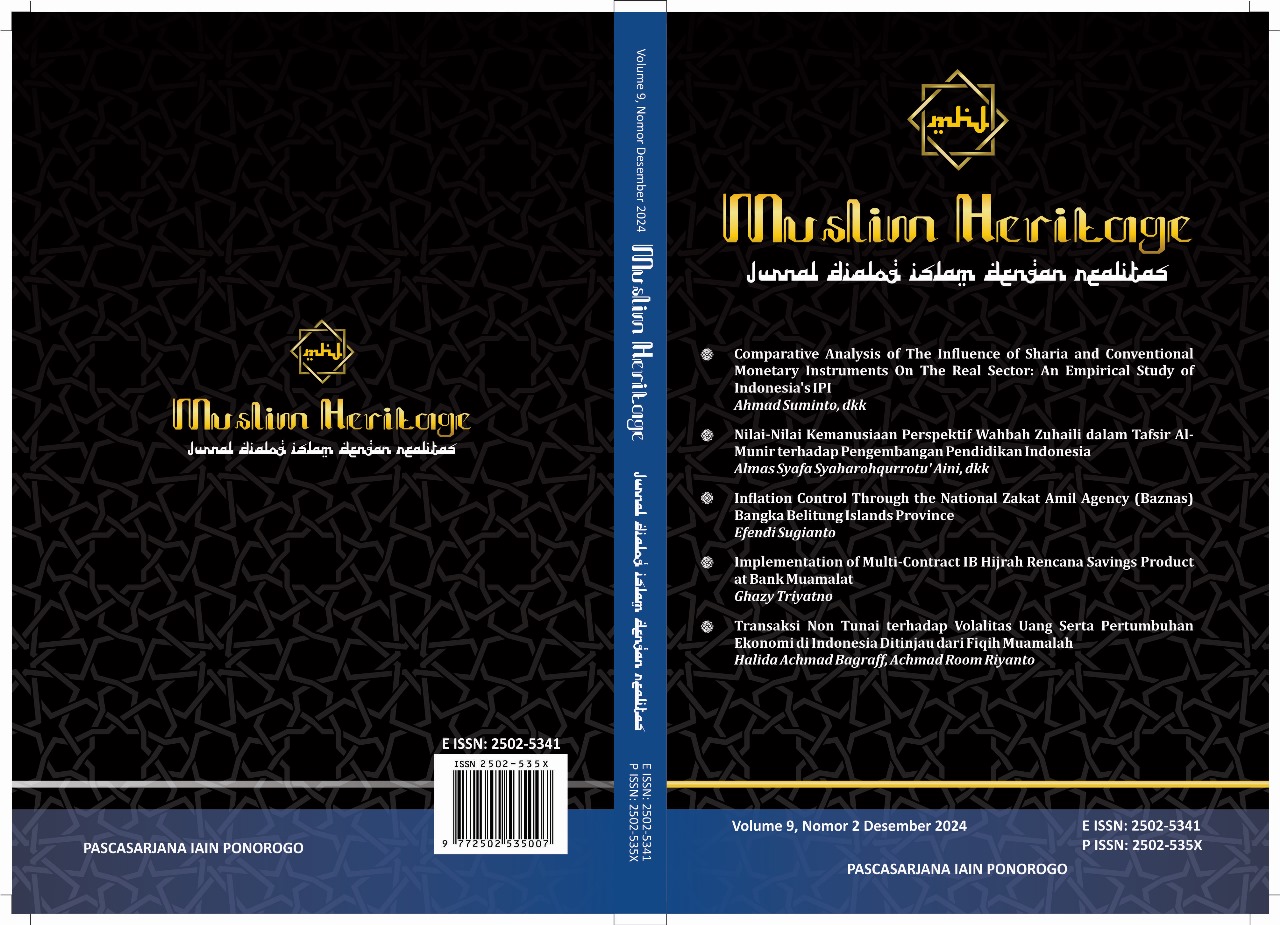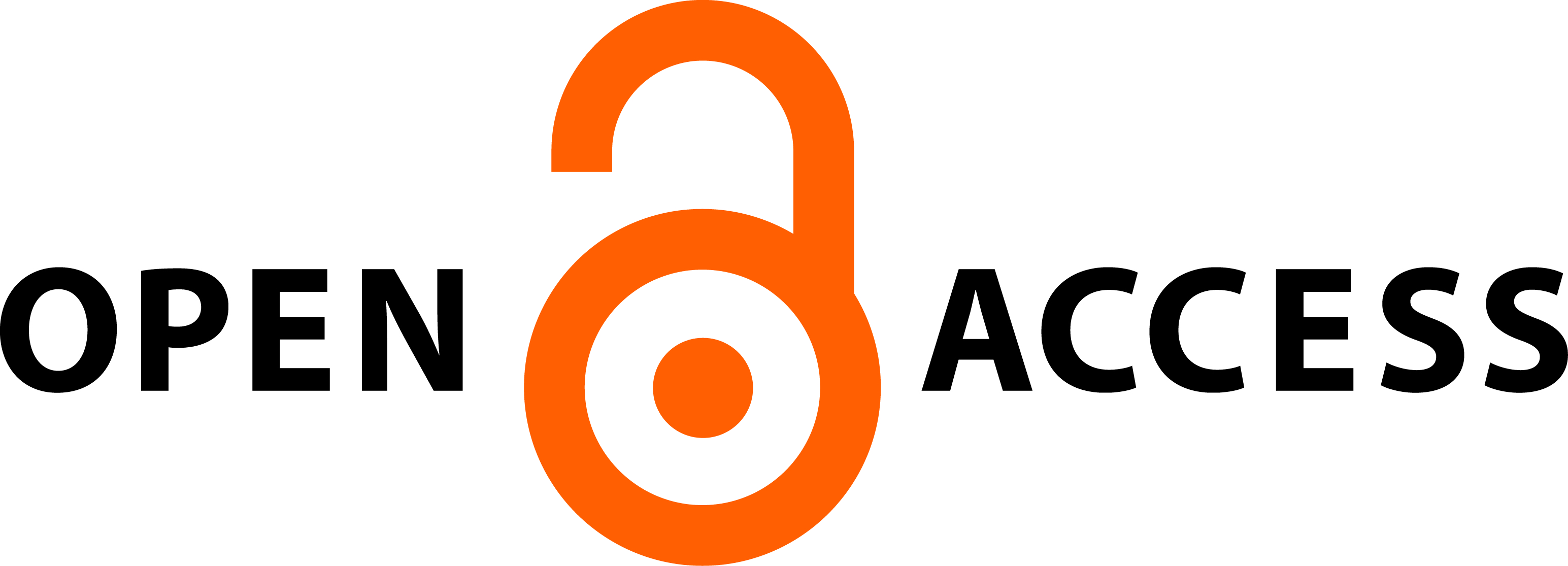Nilai-Nilai Kemanusiaan Perspektif Wahbah Zuhaili dalam Tafsir Al-Munir terhadap Pengembangan Pendidikan Indonesia
DOI:
https://doi.org/10.21154/muslimheritage.v9i2.9604Abstract
Abstract
Indonesia often experiences conflicts between groups due to differences in ethnicity, religion, and political interests. This conflict adversely affected the unity of the country. The problem needs to get a concrete solution by improving the quality of Islamic education in Indonesia. This study aims to outline the human values according to Wahbah Zuhaili in Tafsir al-Munir in order to be a solution to humanitarian issues that occur in Indonesia, including poverty, economic inequality, access to education, ethnic, religious, and political conflicts, human rights protection, corruption, and injustice. As well as a guide for the development of Islamic education in Indonesia. The method used is descriptive qualitative method, the type of literature review (library research), as well as studying the Book of Tafsir Al-Munir. The urgency of Wahbah Zuhaili's thinking on humanitarian issues is very relevant for the development of Islamic education in Indonesia. The results of this study indicate that human values in Tafsir al-Munir according to Wahbah Zuhaili include justice, compassion, equality, virtue, respect for Human Rights, generosity, and social solidarity. Human values outlined by Wahbah Zuhaili and implemented, Islamic education in Indonesia can be more targeted and inclusive. With this will produce a generation that not only excels in knowledge and skills, but also has a strong moral character, which is ready to face global challenges and contribute positively in society.
Abstrak
Indonesia sering mengalami konflik antar kelompok karena perbedaan etnis, agama, dan kepentingan politik. Konflik ini berdampak buruk pada kesatuan negara. Problematika tersebut perlu mendapatkan solusi yang konkret yaitu dengan meningkatkan kualitas pendidikan Islam di Indonesia. Penelitian ini bertujuan untuk menguraikan nilai-nilai kemanusiaan menurut Wahbah Zuhaili pada Tafsir Al-Munir guna menjadi solusi isu-isu kemanusiaan yang terjadi di Indonesia meliputi kemiskinan, ketimpangan ekonomi, akses pendidikan, konflik etnis, agama, dan politik, perlindungan hak asasi manusia, korupsi, dan ketidakadilan. Serta menjadi panduan bagi pengembangan pendidikan Islam di Indonesia. Metode yang digunakan adalah metode kualitatif deskriptif, jenis kajian pustaka (library research), serta menelaah kitab Tafsir Al-Munir. Urgensi pemikiran Wahbah Zuhaili mengenai isu-isu kemanusiaan sangat relevan bagi pengembangan pendidikan Islam di Indonesia. Hasil Penelitian ini menunjukkan bahwa nilai-nilai kemanusiaan dalam Tafsir Al-Munir menurut Wahbah Zuhaili meliputi keadilan, kasih sayang, persamaan, kebajikan, penghormatan terhadap hak asasi manusia, kedermawanan, dan solidaritas sosial. Nilai-nilai kemanusiaan yang diuraikan oleh Wahbah Zuhaili serta di implementasikan, pendidikan Islam di Indonesia dapat menjadi lebih terarah dan inklusif. Dengan ini akan menghasilkan generasi yang tidak hanya unggul dalam pengetahuan dan keterampilan, tetapi juga memiliki karakter moral yang kuat, yang siap menghadapi tantangan global dan berkontribusi positif dalam masyarakat.
Keywords: Human Values; Wahbah Zuhaili; Education
Downloads
Published
Issue
Section
License

This work is licensed under a Creative Commons Attribution-NonCommercial 4.0 International License.
Requirements to be met by the author as follows:
- Author storing copyright and grant the journal right of first publication manuscripts simultaneously with licensed under the Creative Commons Attribution License that allows others to share the work with a statement of the work's authorship and initial publication in this journal.
- Authors can enter into the preparation of additional contractual separately for non-exclusive distribution of a rich version of the journal issue (eg:post it to an institutional repository or publish it in a book), with the recognition of initial publication in this journal.
- Authors are allowed and encouraged to post their work online (eg, in institutional repositories or on their website) prior to and during the submission process, because it can lead to productive exchanges, as well as citations earlier and more severe than published works. (see The Effect of Open Access).















